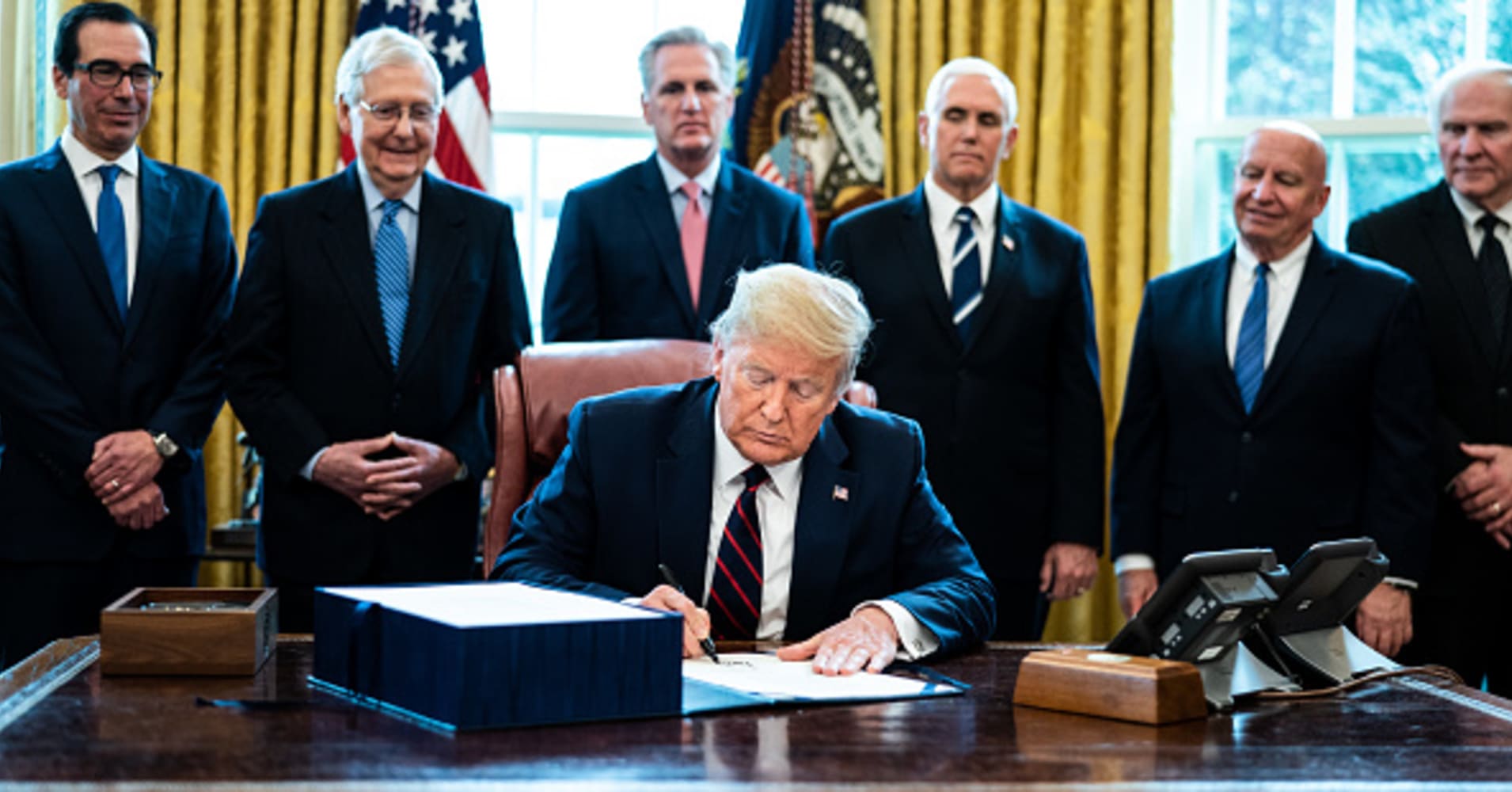NEW YORK—The Open Society Justice Initiative and four law professors, Diane Marie Amann, Gabor Rona, Milena Sterio, and Margaret deGuzman, have filed a complaint against the U.S. government over a Trump administration executive order authorizing draconian economic sanctions and severe civil and criminal penalties for those who support the International Criminal Court (ICC).
The lawsuit is the first to challenge Executive Order 13928, and comes one month after the U.S. imposed sanctions on senior officials at the ICC, including Fatou Bensouda, the court’s chief prosecutor.
The lawsuit—filed today in a federal court in the Southern District of New York against President Trump, Secretary of State Mike Pompeo, Secretary of Treasury Steven Mnuchin, Office of Foreign Assets Control Director Andrea Gacki, Attorney General William Barr, and their respective U.S. Departments—argues that the executive order violates constitutional rights, including the plaintiffs’ freedom of speech, and prevents them from carrying out work in support of international justice.
The plaintiffs, all who speak, write, and advocate about international justice issues around the world, contend that it irreparably harms their professional work. The lawsuit also seeks to stop the U.S. government from enforcing the executive order while the court considers its constitutionality.
James Goldston, executive director of the Open Society Justice Initiative, said, “By issuing this outrageous order, the Trump administration has betrayed Washington’s long-standing support for international justice, snubbed its allies, and violated the U.S. constitution. We are going to court to end this reckless assault on a judicial institution and the victims it serves.”
The ICC was created in 2002 by the Rome Statute, a treaty, and is authorized to investigate and prosecute serious crimes including genocide, war crimes, and crimes against humanity, that are committed on the territories, or by the nationals, of the 123states that are party to the treaty. The U.S., while instrumental in setting up the ICC, has never ratified the treaty. The ICC only acts when countries are unwilling or unable, upon request of the UN Security Council or a state party to the treaty, or on initiative of the prosecutor if authorized by the ICC judges.
The executive order is the latest in a series of attacks by the U.S. government on the ICC. On March 15, 2019, Secretary of State Mike Pompeo announced that the U.S. would impose visa restrictions on “individuals directly responsible for any [ICC] investigation of U.S. personnel.” On June 11, 2020, President Trump issued Executive Order 13928, targeting persons associated with or supporting the International Criminal Court.
On September 2, Secretary Pompeo announced that the U.S. was imposing asset freezes and other financial sanctions on two senior officials at the ICC, Bensouda and Phakiso Mochochoko the head of the ICC’s jurisdiction division. Officials from the United Nations, the European Union, other U.S. allies like Canada, and Bensouda’s home country, The Gambia, swiftly condemned the U.S.’ actions.
The plaintiffs are represented by a team of lawyers at Foley Hoag LLP, led by Andrew Loewenstein.
Open Society Justice Initiative et al. v. Donald J. Trump et. al Download the 53-page report.Pages, 2.33 Mb, PDF DOWNLOAD
(justiceinitiative)


